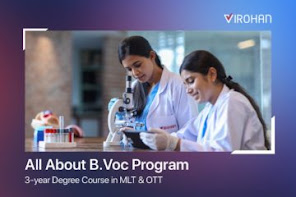It Did What? 7 Secrets About Paramedical Courses
Some people think paramedics are only in the ambulance to drive. Ask a paramedic what they do and you might be surprised at the range of skills they can tell you about. And while paramedics do offer transport services, that's far from all they do.
Paramedics are highly skilled medical professionals who often take the lead in emergencies. With training in pre-hospital medical care, paramedics can provide care for patients during many different types of emergencies and non-emergencies. Paramedics are trained to provide medical care in environments that are often hostile and unattended. This is why the paramedics must be trained to handle any situation.
Paramedic Courses are offered by several universities and institutions; however, it is essential to know about them before enrolling yourself in one. Here are 7 secrets about Paramedical Courses that you should be aware of:
The paramedical program is a comprehensive course that covers all aspects of the pre-hospital emergency medical response and patient care. It is designed to provide graduates with the knowledge and skills necessary to become a paramedic. Paramedics are highly trained and qualified to handle emergencies and provide first aid care to patients in need. Paramedics can work in a variety of different environments and are often called upon to do more than just provide first aid. It is for this reason that this profession is so rewarding.
Paramedical courses are short-term programs and can be completed in 1-2 years only. These courses offer specializations in various fields like pathology, radiography, dialysis technology, and many more. A person who has passed class 12th in the science stream from a recognized board can apply for these programs.
Paramedical courses exist in many specializations. There is a scope for students to choose any specialization within paramedical studies. It could be basic paramedic training or anything related to nutrition, nursing, or any other health care field. Many institutes offer various types of paramedical courses for students to choose from. Paramedic courses are designed to give students a full understanding of the process of providing medical treatment in an emergency.
Paramedics are trained in advanced life support skills, such as intubation, defibrillation, use of drugs, and advanced airway management. They can administer a wide range of medications, performing tasks previously reserved for physicians. Paramedics work in an ambulance or on the scene of an accident or other emergency.
Career Scope of Paramedical Courses Is Huge: After completing paramedical programs, students can work as laboratory technicians, radiology technicians, cardiology technicians, and more. They can either get a job at government hospitals or start their practice.
One of the most important secrets about paramedical courses is that they have a bright future. This is because there is a huge shortage of medical professionals in India. As per the report published by The Economic Times, India has a shortfall of 600,000 doctors and 2 million nurses. This clearly shows that there will always be a demand for skilled medical professionals. Even if you think of it from an economic point of view, you will realize that the country has come so far due to the growing health sector. Hence, there will always be a demand for skilled paramedics.
Paramedical courses are not as easy as they appear to be. A lot of hard work is required for completing these courses successfully. Paramedic training is one of the most demanding professions in the world. It requires a high level of physical fitness, an understanding of medicine, a strong knowledge base in physiology, and excellent interpersonal and communication skills. Most paramedic courses cover a variety of topics including patient assessment, CPR, pharmacology, anatomy, physiology, and trauma management. A paramedic can also be expected to take continuing education courses every few years to remain current with new developments in medicine.



Comments
Post a Comment